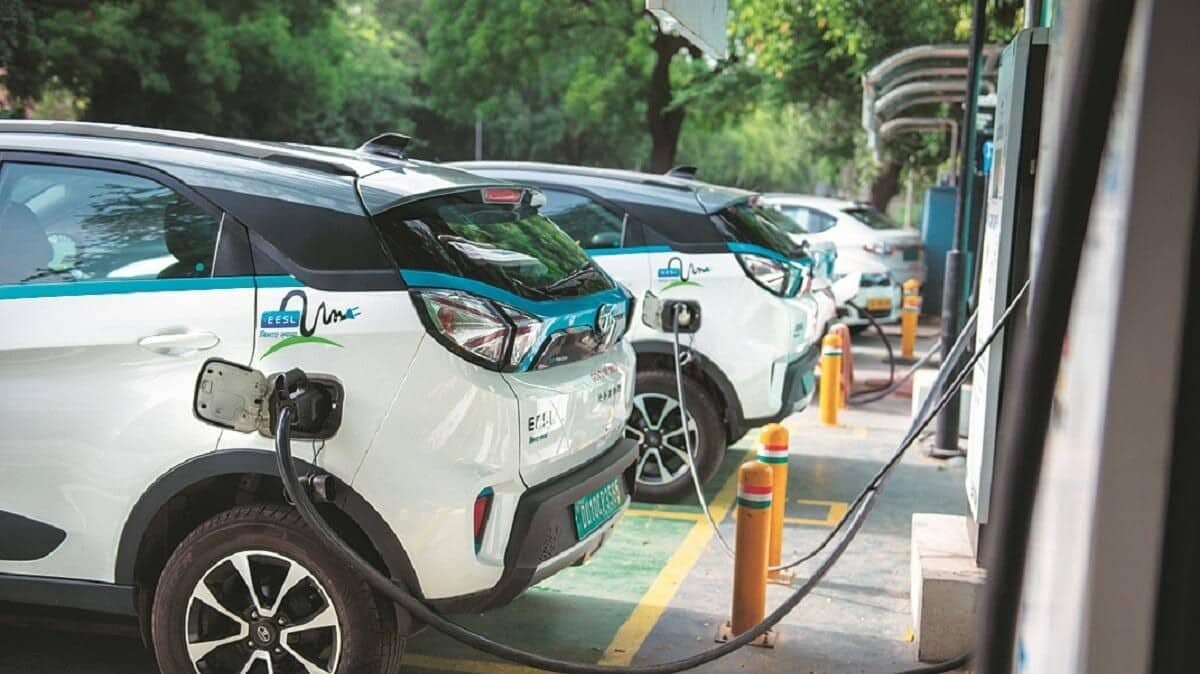
India needs better infra for EV manufacturing, says Economic Survey
What's the story
The Economic Survey for FY25 has underscored India's requirement to localize technology and raw materials for electric vehicle (EV) manufacturing. The strategic pivot is viewed as a reaction to China's iron grip on the global EV supply chain. Chief Economic Advisor V Anantha Nageswaran stressed on this need in the annual report released ahead of the Union Budget, saying, "Indigenizing technology and raw materials for electric mobility is an urgent task."
Strategy shift
Public transportation prioritized in energy transition
The Economic Survey also emphasized that India should prioritize public transportation in its energy transition, instead of only focusing on private EV adoption. The report said, "Given India's vast size and limited land availability, public transportation is a more efficient alternative for a viable energy transition." It further recommended that national-level policies should promote and facilitate its use, expanding beyond tailpipe emissions from personal transportation decisions.
Transit improvement
Enhancing public transit could reduce reliance on imports
The survey highlighted that improving public transit networks could reduce India's reliance on imported EV components. It found that only 37% of India's urban population enjoys easy access to public transport, a lower figure than Brazil and China where over 50% of city dwellers benefit from well-connected transit systems. The report stressed on integrated transport systems and investments to make public transport efficient, reliable, comfortable, accessible, and safe—major step toward net zero goals while cutting reliance on imports.
Scheme alignment
Government's PM e-Drive scheme aligns with public transit focus
The government's PM E-drive scheme, its flagship EV subsidy program, also reflects this emphasis on public transport. The scheme has earmarked 40% of its ₹10,900 crore budget for the electrification of intra- and inter-city busses. However, despite these efforts, the Economic Survey noted that China's dominance in the global EV supply chain remains unchallenged as it is vertically integrated from mining to manufacturing.
Mineral monopoly
China's stronghold on critical minerals for EV batteries
The survey flagged securing critical minerals such as lithium, nickel, and cobalt for EV battery production as India's biggest challenge. It found that China processes 65% of global nickel, 68% of cobalt, and 60% of lithium. The report added, "The lack of viable alternative battery technologies reinforces China's stronghold on lithium-ion batteries," which are likely to remain the primary energy source for EVs "for quite some time."
R&D emphasis
Need for advanced R&D in alternative battery technologies
The Economic Survey highlighted the importance of advanced research and development in alternative battery technologies such as sodium-ion and solid-state batteries. It recommended that securing intellectual property rights in this area could prove invaluable. The report also emphasized China's dominance as the global EV powerhouse, contributing to 60% of all electric vehicle sales in 2023, according to the International Energy Agency (IEA).
Sales surge
India's EV sales and policy shifts
India's EV sales in 2024 reached 1.9 million units, a 21% increase over last year. The country has started phasing out EV purchase subsidies under the PM E-drive scheme, similar to China's 2023 decision to withdraw direct subsidies after a decade of market support. Now, policymakers are focusing on domestic manufacturing incentives through schemes like Production-Linked Incentive (PLI) for advanced automotive technology (PLI-AAT) and battery manufacturing (PLI-ACC).
Recycling necessity
Economic survey highlights need for battery recycling infrastructure
The Economic Survey highlighted the importance of a strong battery recycling infrastructure to reap long-term benefits for India's EV sector. It recommended that in the meantime, PLI schemes could also encourage the manufacturing of EV cells (Lithium-ion cells), as most of the manufacturing and value addition happens till this stage. The report also recommended technology transfer partnerships with countries looking to diversify their supply chains, as a means to reduce reliance on China's battery and mineral processing industries.